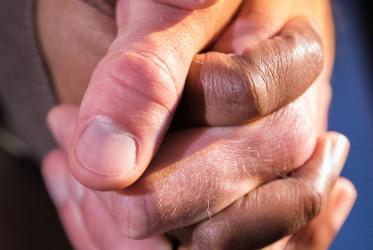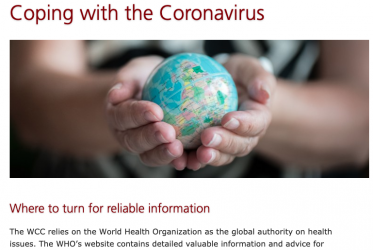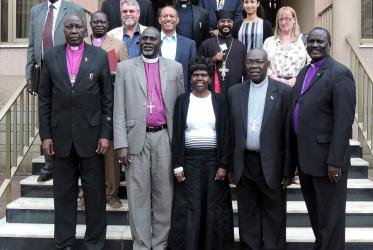Displaying 21 - 40 of 41
Call for day of prayer for South Sudan reinforces message of peace
20 February 2018
WCC encourages participation in day of prayer for South Sudan, DRC
16 February 2018
Day of prayer and fasting for peace in South Sudan, Democratic Republic of Congo
23 February 2018
Worldwide
South Sudan church leaders offer Christmas season roadmap for hope
21 December 2017
In South Sudan, times are difficult but churches serve together
16 October 2017
UN discussion focuses on women, HIV and property rights
21 March 2017
Pilgrimage of justice and peace gives vision for WCC programmes
22 November 2014













